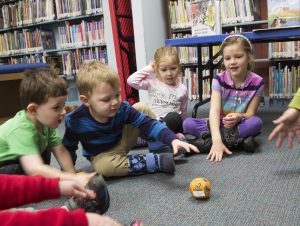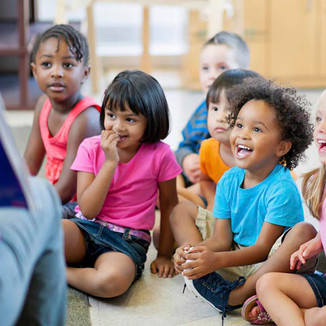How to encourage kids to share gratitude and appreciation?
- Celine Wright

- Feb 9, 2021
- 3 min read
"Everyone has days with stormy feelings. Sometimes I have days with stormy feelings.
When I have a day with stormy feelings, I rest and name things I appreciate about my day, then I feel better." Candice Rinpoche
When a child has a day filled with stormy feelings, it is so helpful to rest and relax in mind, open like the sky, unscratched by the stormy feelings. Focusing on stormy feelings can become a habit and it is not very comfortable! We can retrain ourself instead to focus on appreciation and gratitude, this really feels much better!
Today I am excited to share a game you can play with children, which I learnt from Candice Rinpoche. We call it: 'Playing Appreciation'. It can be done one to one, or with a group!
Playing Appreciation
Rinpoche explains that if a child had an upset day, it is important to state :
"Everyone has days with stormy feelings. Sometimes I have days with stormy feelings.
When I have a day with stormy feelings, I rest and name things I appreciate about my day, then I feel better."

'We play appreciation wherein we choose something like a new toy or a person and then we state the things we appreciate about each.
We also can say "what do you appreciate about me"
and "what do you appreciate about yourself"
or "I appreciate this about you" and then name a few characteristics.
It is good to let children know we appreciate them being kind.
Sometimes we say “I appreciate your kindness” when they are kind, and “I really enjoy being with you, thank you,” or the equivalent. '
Whilst one person shares, the group listens openly. Children can focus on negative things about themselves, and naming what we do appreciate makes the muscle of focusing on gratitude and seeing our own strengths stronger.
Example of Playing Appreciation as a powerful tool to harmonise relationships.
Here's how it might look. For example a child in my care was upset, they said they didn't like their gymnastics teacher any more. The gymnastics teacher said they couldn't play the whole session on the trampoline.

'We play appreciation wherein we choose (...)a person and then we state the things we appreciate about (them).'
Now how could playing appreciation in this situation look?
When the stormy feelings had settled I suggested we start playing appreciation, and we took turns stating things we liked about our day, about ourselves and gently I brought in the gymnastics teacher and shared one thing I like about them, for example that they keep all the children safe. I asked the child what they like about the teacher, and quickly the child found things they liked, like how the teacher sets up fun obstacle courses.
By opening gratitude, and sharing what we appreciate about the teacher, the child saw a vaster vantage, like from the top of mountain, and they saw that maybe this person was doing the best they could and it made it easier to face the teacher the next time they saw them.

We can do the appreciation game, at the dinner table, on a car journey...
You might want to pass a ball, a talking stick. It is a wonderful way to bond together and to ensure every voice is heard!
I found the best way to encourage children to express gratitude is to role model focusing on gratitude is to focus on gratitude myself.
I love to hear children use the tricky words: 'Today I appreciated..' Even very young the word 'appreciation' can be used; it expands children's vocabulary!
Self Reflection
Here's a few more ideas from Rinpoche:
'Also state things you like about yourself so the child will know how to reflect on their own characteristics. Additionally, "I can do this better," with each of you stating what you can do better, beginning with you. Most often, children are not taught self-reflection,
instead relying on their parents telling them what to do and what not to do.'
I hope you enjoy these precious instructions as much as I do and we'd love to hear your experiences and insights!















Comments